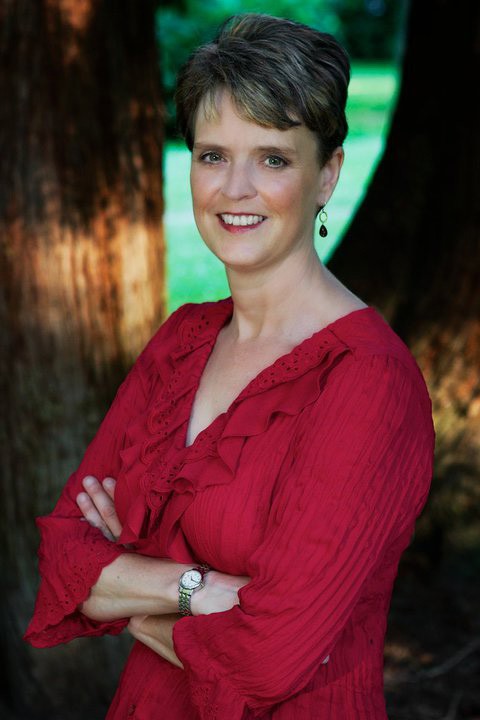How to lighten up your writing & characters: “before” and “after” examples.

As posted last week, my intro….
The bad news is that my latest manuscript has been gathering rejections. The good news is that the rejections have come with consistent feedback. That’s rare and highly useful, and therefore something to appreciate as I, by necessity, must now transition from writing to revision mode.
According to those who dared to reject me (hey, it does feel like a stomach punch the first week!), I have three weaknesses in this not-yet-up-to-snuff young-adult novel:
1. My protagonist is a little on the “morose” side, and I need to jolly him up, give him a more upbeat and distinctive “voice.” In other words, lighten up!
2. Some of my teen dialogue and expressions are “outdated.” (Now there’s a tricky accusation, given how fast expressions change, and how slang can be regional, even cultural.) In other words, stay current with teen talk.
3. My first-person narrator sometimes uses over-sophisticated words, or doesn’t talk like a normal teen. This is a sin I committed not during dialogue (I know better) but during description/narration paragraphs, when it feels okay to slip into my own way of speaking. Yet having opted for a first-person teen point of view (POV), all narration (not just dialogue) has to be in his voice, which means his vocabulary level and type of expressions. It’s something I hadn’t really thought about, and needed to be told, so I hope it helps others reading this. In other words, keep POV consistent in dialogue and narration.
4. In places, there is too much showing, not enough telling. What?! After 17 published books, I can still have that one leveled at me? Evidently so!
Now that I’m nearly completed my revisions, I’ve decided to spend a blog each on these four lessons, starting next week with “lighten up.” (I try to post every Wednesday.) I’m going to share “before” and “after” passages, so you can see the differences I’ve made during weeks of back-breaking revisions. Call it Fiction Writing 201, but it’s useful perspective if it helps save you from the “ouch” of rejections.
Lightening up
Lightening up means inserting humor where possible, and building/maintaining your character’s particular “voice.” Not sure what that is? Check out Breathing Life into Your Characters by Rachel Ballon, Ph.D.:
If you’re writing for young adults like I am, then lightening up certainly overlaps with using more “teen talk” and maintaining the point of view, both of which I’ll speak to in this blog series the next few weeks.
But clearly the best way to demonstrate how to “lighten up” an overly downtrodden/sad/morose character or plotline, is to see examples. Here goes, from my novel-in-progress!
Some before-and-after passages to give you a sense of how I “lightened up”:
BEFORE: Bare feet are soundless. Combined with stealth, they can buy a sliver of freedom each day. So I rise in the dark each morning just as my bedroom window catches dawn’s first hint of light.
AFTER: Bare feet are soundless. Combined with stealth, they can buy a sliver of freedom. A daily sliver of freedom is all I need, but I need it like oxygen. Seriously. So, being the Sultan of Stealth, I sneak out of my bedroom before dawn and pad ninja-like down the hallway.
*
BEFORE: Silently, I glide down the hallway to peer into my mother’s room. The pallid glow of her bedside clock illuminates her fragile form shrouded by twisted sheets. A hand dangles beside the nightstand that is crowded with pill bottles.
I watch for the gentle rise and fall of her chest. I watch for a long time to make sure she’s okay. Then, and only then, do I give myself permission to move away like a shadow.
AFTER: First, I peer into my mother’s room, where the feeble glow of her bedside clock identifies her shape shrouded by twisted sheets. A hand dangles beside the nightstand crowded with pill bottles.
I sigh, then catch myself. I’ve sworn off sad and don’t do “down” anymore. Instead, I remind myself to celebrate the gentle rise and fall of her chest.
Hang in, Mom. And forgive me, but I gotta step out for a breath.
*
BEFORE: Homework, the dishes and scrubbing the kitchen floor are higher priority – as in, I need to get them done between this sneak outing and school this morning. Each week I’m getting a little more organized, doing more of the housework.
AFTER: Homework, the dishes and scrubbing the kitchen floor are higher priority – as in, I need to check off all these new Head of the Household duties in between this jailbreak and the high school’s morning bell.
Like a fake sumo wrestler who bounces trouble off his cool rubber suit, I’m finding the chunk of chores and attempt at a new attitude easier every week. If Mom were more with it, she’d be proud of me. If Dad hadn’t disappeared – well, then I wouldn’t need the rubber suit or have to face these new, life-enhancing obligations. But yeah, he’d be proud of me too.
If only a raise came with the promotion.
*
BEFORE: “I’m not a kid,” I reply.
AFTER: Who does he think he is, attempting to lecture a near guru of this terrain?
“I’m not a kid,” I declare.
*
BEFORE: Where my uncle found this thirty-year-old space cadet, and why Mom has fallen under Elspeth’s spell, is beyond me. Stop. That’s negative.
AFTER: Where my uncle found this thirty-year-old space cadet and why Mom has fallen under Elspeth’s spell is beyond me. Oops. My negatory detect-o-meter is beeping.
*
BEFORE: “How’s your mom doing?”
“She’s okay,” I say.
AFTER: “How’s your mom doing?”
“She’s fine,” I reply automatically. If I could charge $25 for every time someone asks me that, I’d be making good coin.
*
BEFORE: “Yeah-yeah-yeah!” I shout as I retrieve my floating pack and tread water in the cold, clear pool.
AFTER: “B-b-balmy!” I shout as the water flash-freezes my privates and seeps between my wetsuit and bare skin in an effort to warm itself.
*
BEFORE: We survey the crack from which our tree emanates. The maze of branches almost resembles a beanstalk, ending at a point about two-thirds the way up the canyon.
AFTER: We eye the crack out of which our tree thrusts. The maze of branches almost resembles a beanstalk, ending at a point about two-thirds the way up the canyon wall.
“We’re going to make like Jack in the Freakin’ Beanstalk,” I suggest.
*
BEFORE: Wait, I’m being grumpy again.
AFTER: Negatory detect-o-meter activating.
*
BEFORE: “Male or female?”
I lean down closer to compare front and back footprints. Since a skunk’s hind feet are slightly to the outside of the front feet, and females’ wider pelvises make them walk that way, I say, “Female.”
AFTER: “Male or female?”
I lean down closer to compare front and back footprints. Since the hind feet are slightly to the outside of the front feet, and females’ wider pelvises make them waddle like my 300-pound Great Aunt Hilda, I say, “Female.”
*
[hanging from a vine on cliff’s edge]
BEFORE: I stare up at the welcome sight of Dominik’s face. “Dominik! Can you help me up?”
“Sure,” he says. “I do not know what you are up to, you fool, but give me your hand.” His strong arm helps me the last few feet.
AFTER: I stare up at the welcome sight of Dominik’s face. “Dominik! What’s happening? I’m just hanging out here, but could use a hand.”
“I guess you could, you demented devil.” His bulging bicep hoists me up like a powerful mechanical crane.
*
BEFORE: I imagine her cozying up to him and pouring on the charm just long enough to get what she wanted.
AFTER: I imagine her cozying up to him and pouring on the charm just long enough to get what she wanted. Polish passion clearly fries the brain circuits.
*
BEFORE: “Just wanted to see where he lived,” Dean says.
“I never invited him,” I say.
*
BEFORE: The Saturday customers turn out to be Dominik plus a young married couple.
AFTER: The Saturday customers turn out to be Dominik plus some smoochie newlyweds.
*
BEFORE: I’m not going to do anything more to annoy our guide than I already have.
AFTER: I’m not going to do anything more to annoy our guide – whose mood is a match for a grizzly bear with a toothache – than I already have.
*
BEFORE: “Hungry?”
“Of course.
AFTER: “Hungry?”
“As a wolf pack in winter.”


